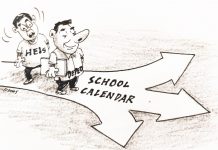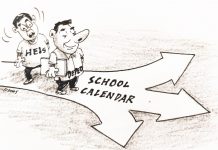
The rich cultural heritage of a civilization is best represented by its oral lore and literature. These timeless stories, poems, and songs passed down from generation to generation encapsulate the essence of a civilization and its people. However, with the advent of technology and modernization, oral traditions and literature are at the risk of being forgotten and lost forever. Thus, it is imperative to retrieve these invaluable treasures to preserve the legacy of our ancestors and to sustain our cultural identity.
Undoubtedly, oral lore and literature hold immense historical significance. The tales and legends passed down orally from one generation to another reflect the values, beliefs, and customs of a society. They offer a glimpse into the past, giving us a sense of how our ancestors lived, thought, and perceived the world around them. For instance, the Iliad and Odyssey of Homer, considered masterpieces of Greek literature, provide critical insights into the life and culture of ancient Greece. Similarly, African folktales and myths serve as a repository of historical information, portraying the struggles and triumphs of African societies.
Oral traditions and literature are an essential component of cultural identity. Cultural identity is a crucial aspect of who we are as individuals and communities. It shapes our values, beliefs, and behaviors and provides a sense of belongingness and attachment. Oral traditions and literature serve as a manifestation of cultural identity, embodying the unique features of a particular society. Thus, by retrieving and preserving this cultural heritage, we can strengthen our sense of identity and promote cultural diversity and tolerance.
Oral lore and literature are also a source of artistic and aesthetic inspiration. These literary gems are not only repositories of historical and cultural information, but they also contain a high degree of artistry and creativity. Folk songs, for example, use vivid imagery and emotive language to capture the essence of human emotions and experiences. Similarly, poetry is an art form that entails the use of language to convey deep emotions and feelings. By retrieving oral traditions and literature, we can enrich our aesthetic sensibilities and foster creativity and imagination.
Furthermore, oral traditions and literature promote language and literacy skills. Oral traditions and literature serve as an excellent medium for learning and practicing language skills, especially for children. Children who are exposed to a diverse range of stories and tales develop better language and literacy skills, which later translate into better academic performance. Furthermore, reading and listening to oral traditions and literature enhances critical thinking, analytical, and problem-solving skills.
Oral traditions and literature moreover provide insight into traditional ecological knowledge. Traditional ecological knowledge, a term coined by Canadian anthropologist Fikret Berkes in 1993, refers to the knowledge and practices developed by indigenous and traditional communities concerning the environment. TEL embodies a profound understanding of ecological systems and practices that have helped these communities sustainably manage their resources for centuries. Oral traditions and literature also preserve and pass down these knowledge systems, which offer crucial insights into how we can preserve our environment and sustainably manage our resources.
Retrieving oral traditions and literature can help revive dying languages. Many ancestral languages are at risk of dying out due to a lack of speakers and modernization. Oral traditions and literature, however, are an excellent way to keep these languages alive. By relearning and sharing these stories, we can help revive these dying languages and preserve our linguistic heritage.
The retrieval of oral traditions and literature can help bridge cultural divides and build intercultural relationships. Culture and ethnicity often form the basis of racial and ethnic conflicts. However, by appreciating and valuing the cultural diversity that exists in our world, we can build bridges and promote intercultural relationships. Oral traditions and literature provide excellent opportunities for this since they transcend cultural boundaries and offer universality.
Retrieving and preserving oral lore and literature is therefore imperative to preserve our cultural heritage, identity, and legacy. It offers historical knowledge and insights, artistic inspiration, language, and literacy skills, traditional ecological knowledge, linguistic and cultural revival, and intercultural relationships. Oral traditions and literature are gateways to our past, present, and future, embodying the voices of our ancestors and generations yet unborn. Therefore, we must make every effort to retrieve, preserve, and celebrate oral traditions and literature, ensuring that we honor the legacy of our ancestors and pass on their wisdom to future generations.



